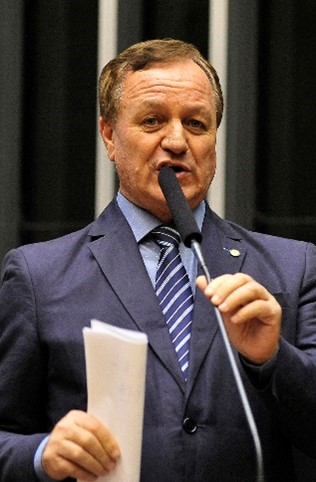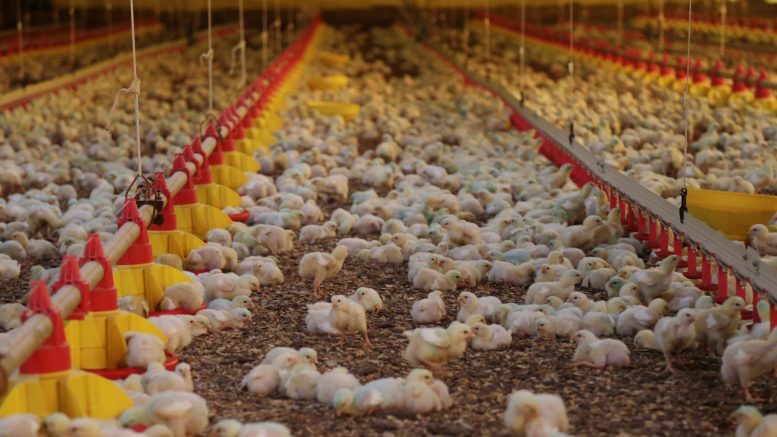“We have to take the internet infrastructure, three-phase energy and other structuring issues to the countryside, in addition to taking care of health”
Valdir Colatto is the secretary of agriculture, fisheries and rural development of the State of Santa Catarina. Colatto is a farmer, agricultural technician and agronomist from the Federal University of Pelotas. He was congressman, director of Incra on Santa Catarina, superintendent of OCB, and general director of the Brazilian Forestry Service.

Valdir Colatto, secretary of agriculture of the State of Santa Catarina
AgriBrasilis – What are the main challenges for agriculture in the State of Santa Catarina?
Valdir Colatto – There are two scenarios: national agriculture, based on commodities, and our agriculture, based on small farmers, that is the model for the State of Santa Catarina. We want to preserve the State model, and that’s why we have to keep young people in the farms. Therefore, it is necessary to guarantee the income of the farmers. If we do not guarantee income, the farmers do not keep their children in the farm, nor does they maintain their properties.
We must bring to the countryside the conditions that we have in the urban area. It is necessary to work on the structural issue, that is, the land issue. We need to solve the problems of public deeds, documentation for farmers. Today, more than 100,000 families do not have a public deed, and end up excluded from social and credit programs.
In addition, there is the issue of environmental regularization. Today, there is a lot of talk about sustainable development. We need to ensure that our farmers preserve their economic activity, but this activity must be sustainable. That’s what the market wants. We need to preserve the environment.
We have to take the internet infrastructure, three-phase energy and other structuring issues to the countryside, in addition to taking care of health, an issue in which Santa Catarina is a State with a status of excellence, that we need to maintain.
AgriBrasilis – What are the works to prevent the entry of avian flu in the State?
Valdir Colatto – There are approximately 1,050 professionals at the Integrated Agricultural Development Company of Santa Catarina – Cidasc, with 58 fixed posts, that operate 24 hours a day, seven days a week, to guarantee the health of our herds. In addition, the State Poultry Health Committee has been meeting every two weeks to present the actions that must be carried out, according to the guidelines of the technical teams.
The Secretary of Agriculture, Cidasc, the Agricultural Research and Rural Extension Company of Santa Catarina – Epagri, the Civil Defense, and other public agencies and productive entities, are all mobilized, in a constant and joint effort, aware of the importance of this question.
The Government of Santa Catarina assumes the responsibility of seeking to prevent the entry of this disease in the State. In recent months, we implemented measures such as the ban on competitions in the agricultural sector with the presence of birds at fairs, the ban on visits to farms, the mandatory quarantine for anyone who works on bird farms and for those who have traveled to a country with a case of this illness.
AgriBrasilis – The Secretariat of Agriculture changed the rules of the Land Fund Program. How should this influence the acquisition of rural properties?
Valdir Colatto – The goal of the Secretariat is to ease the acquisition of rural properties. Farmers will be able to access financing of up to US$ 34,990 to purchase land and up to US$ 6,000 to invest in infrastructure. The forecast for 2023 is to serve 300 farmers, providing US$ 10.4 million in financing.
We also increased the income limits on beneficiaries’ wealth. The farmer must present gross annual family income, originating from any means or nature, in the amount of up to US$ 16,000 and assets of up to US$ 99,980.
With these new rules for the Land Fund, beneficiaries can contract financing with a 20-year payment period, with a two-year grace period, with a correction of 2.5% per year. Farmers will have the deed to the land, will be able to work and farm safely. We want to guarantee another land access policy. After all, if the farmer doesn’t plant, the city doesn’t have a lunch or dinner.
AgriBrasilis – What are the goals and stages of the Low Carbon Emissions Agriculture Plan?
Valdir Colatto – The intention of the ABC + SC plan is to generate a potential for mitigating greenhouse gas (GHG) emissions of 86.78 million tonnes of carbon, that is equivalent to an investment of US$ 4 billion by 2030. consolidate agribusiness in Santa Catarina on the world stage, assuming a voluntary commitment to reduce GHG emissions, in addition to mitigating and adapting to climate change for the next decade.
We created a plan, that respects the peculiarities and reality of the state, to make our agriculture even more sustainable. We will demonstrate the protagonism of the farmer from Santa Catarina, that combines food production and environmental preservation. We are an international reference in animal and plant health, and now we are going to seek a new competitive edge: sustainable production.
The ABC + SC Plan has as guiding principles the confrontation with the adverse impacts of climate change, the increase of resilience in rural areas, and the sustainability of the agricultural sector. The Secretariat of Agriculture, together with other bodies of the State Government and the private sector, will plan and organize actions for the adoption of sustainable production technologies, answering to commitments to reduce greenhouse gas emissions in the agricultural sector.
AgriBrasilis – You announced that more than 500 farming families in Santa Catarina could be affected if there is demarcation of indigenous lands in the state. Why? What is the status of these demarcations?
Valdir Colatto – The current understanding of the Federal Supreme Court is to consider indigenous lands as those that were occupied at the time of the promulgation of the Federal Constitution, in 1988. If the judgment of Extraordinary Appeal 1.017.365/SC, that is still in progress, changes this interpretation, there may be repercussions in Santa Catarina, with the demarcation of 10 areas in the state – the equivalent of 58.6 thousand hectares.
READ MORE:

